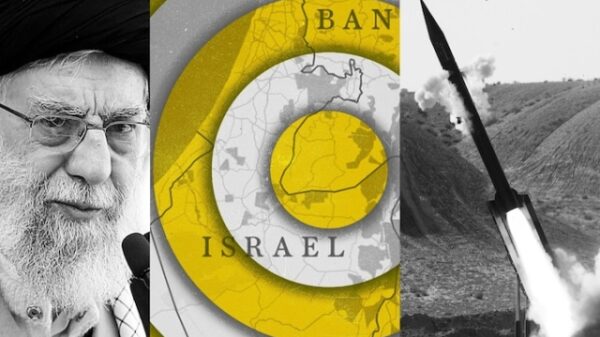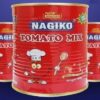Firefighters work amid the wreckage of the Retroville Mall, March 2022. Photo: FADEL SENNA
Like his colleagues at Waitrose and Sainsbury&# 39;s, Ukrainian supermarket owner Dmitry Tsygankov seeks to source groceries from local suppliers. However, few “buy local” schemes are very similar to the one his chain launched after the start of the Russian invasion last year.
“We lost many suppliers during the war, and two of our distribution centers were destroyed, so we signed contracts with many small local producers – from cereals and cereals to confectionery and biscuits,” he says.
True, in the rush, not all new grocery offerings were guaranteed organic, and gluten-free and vegan options weren't always available. The priority, according to Tsygankov, was “just putting the food on the shelves.” But it does help explain why, of all the hardships Ukraine has endured in the last 15 months of the war, its supermarket shelves are generally still remarkably well stocked.
Indeed, it is here in Britain that food shortages have become history, with fried chicken joining a long list of food shortages this month that already includes eggs and fresh vegetables. The deficit has been blamed in many ways, from Brexit and inflation to lousy weather. As for the excuses, they can hardly be compared with the invasion of the world's second superpower. So how did Ukraine do it?
I first asked myself this question during the first week of the invasion, when I was on my way to Kyiv to report for The Telegraph. While the truth is often cited as the first casualty of the war, the second casualty is usually the local supermarket shelves, which are quickly emptying out of panic. A colleague who had just left Kyiv had already offered to collect a bag of food along with a bulletproof vest and a helmet.
“Take as much as you can,” he urged. “There is no food in hotels and there will be a panic in all stores if they are open.”
The advice seemed reasonable. It wasn't just roads and bridges that were bombed, forces loyal to Russia's top shoplifter, Vladimir Putin, robbed every store they came across in the cities they captured.
So it was more out of curiosity than hunger that I wandered into the first supermarket I found open when air raid sirens wailed over Kiev. Far from being empty, it was filled with everything you'll find in North London Waitrose, from a selection of Parma ham and muesli to edamame, fresh carp and a decent wine range (due to wartime booze, unfortunately). ban). The only thing that was not available was fresh bread, and that soon appeared again.
The fact that on that first evening in Kyiv I dined on caviar and French cheese, and not dried noodles, is the merit of people like Tsygankov, director of the Ukrainian supermarket chain Silpo. He realized that the well-being of a country was as important to its survival as its armament. When Russian tanks first laid siege to Kiev, the 44-year-old was at his family's home in Irpen, a suburb that was right on the front line of the Russian offensive.
 Dmitry Tsygankov, director of the Ukrainian supermarket chain “Silpo”
Dmitry Tsygankov, director of the Ukrainian supermarket chain “Silpo”
“First you could hear artillery and military aircraft flying overhead, and then the sound of small arms firing, which was even scarier because it showed that the battle was coming,” he told me via Zoom this week. “We still couldn’t get out of Irpen at that time, so my wife and I went to the local store of my firm and took control of the warehouse, with her at the checkout — we just sold everything we had. could. Being busy really helped keep us calm.”
However, the real problem was getting the shelves to fill up again. Over the past year, Russian bombs have hit everything from bottlers and granaries to biscuit and chip factories. The Tsygankov network alone lost £65 million worth of assets to looting and destruction. In the first few months of the war, about one in ten of the 750 stores were closed due to fighting or Russian occupation.
As the Russian navy blockaded Odessa, Ukraine' The main Black Sea port, a key conduit for food commodities, remains closed except for a UN-brokered agreement to allow grain exports. Thousands of supermarket employees also left the country as refugees, while others volunteered for the front. Considering how Covid lockdowns have exposed the fragility of today's food supply chains, it would be easy to imagine a Ukrainian supermarket closing altogether.
A key first step was to switch supply routes, first from Black Sea ports to overland routes from Europe, and then from trucks to trains. (Ukrainian railroads have remained virtually untouched during Putin's onslaught because his own forces rely on railroad resupply.) Supermarkets also became temporary food aid centers where volunteers helped unload warehouses. When Putin's missiles began to target Ukraine's energy infrastructure last fall, Tsygankov rolled out a program to equip each store with its own generator and Starlink satellite internet hub. Throughout the war, his firm also posted happy comments on its Facebook page.
“Dear friends, together we survived 16 hours of war,” says one post about the first invasion. day. “Baguettes are ripening in bakeries – we have reduced the assortment in order to bake even more. We've started packing cereal for tomorrow's stores so you can replenish your stock.”
Operating as humanitarian aid centers has not spared supermarkets direct attacks. In Kyiv, the Retroville shopping mall, a gigantic enterprise the size of Manchester's Arndale, was reduced to a huge epicenter of smoking ruins in the third week of a cruise missile invasion. The same fate befell the mall last May, just a few days after I ate lunch there. The following month, in downtown Kremenchuk, a rocket attack on a shopping center killed at least 18 people and injured 60 others, including six of Tsygankov's employees.
 June 2022, after a missile attack on a shopping center in Kremenchug Photo: Vyacheslav Pryadko
June 2022, after a missile attack on a shopping center in Kremenchug Photo: Vyacheslav Pryadko
“I can think of only two explanations: The Kremlin is targeting supermarkets. Firstly, they are completely crazy, and secondly, they are fucking idiots who do not achieve their intended goals, ”he says. “After all, why send a ten million dollar rocket to the supermarket?”
The Kremlin claims that Ukrainian shopping centers were used as military warehouses: after the terrorist attack in the Retroville shopping center, the Russian Defense Ministry released videos showing the placement of rocket launchers under a canopy there. But be that as it may, the attacks on shopping malls have caused widespread outrage, not least because they offer a taste of European consumer good life that has long been absent in post-Soviet Ukraine.
 The aftermath of the Retroville shopping mall shelling Photo: Getty Images Europe
The aftermath of the Retroville shopping mall shelling Photo: Getty Images Europe
For example, Retroville, which only opened in 2020, had not only supermarkets, but also a cinema, a Tuscan wine bar, and a hipster gastropub that sold craft beer. It also hosted an art and music festival, Halloween nights and dinner dances. Meanwhile, Silpo supermarkets are a cross between Waitrose and an amusement park, where stores are decorated in different themes. The River Mall in Kyiv, for example, is decorated in the style of a yacht club, while the branch in Kharkiv is decorated in the style of Star Trek with signs in Klingon. In the open-plan kitchens, customers can order dishes prepared by their own chef, paired with a bottle of store-bought wine, with no corkage fee.
However, rocket-damaged supermarkets have shown the same resilience as Ukraine, which has rebuilt bombed-out power lines, fuel depots and bridges. Within six months of the shooting at the Retroville Mall, three-quarters of it was up and running again. “Our task as a business is to help the country’s economy, return jobs and pay taxes.” said Renata Lakubchenienė, its director. “Customers really wanted us to open again, and volunteers helped us clean up, so we opened earlier than planned.”
The effort of national food supply logistics was tedious for all parties involved – Tsygankov describes it as “swimming against the current in sulfuric acid.” But this means that today, even in cities near the front lines, there is still a well-stocked supermarket – the aisles are often filled with heavily armed soldiers pushing carts.
On the contrary, in areas located under Russian occupation, saw their local food economy collapse to Soviet-style levels. In the Black Sea port of Kherson, residents ended up relying on street markets for little more than car sales until the city was retaken by Ukrainian forces in November.
So, is there anything Ukrainians need? ? not enough yet? There were spikes in the early days with long life products and items like sanitary pads. However, today Tsygankov can only think about one thing – about salt. Most Ukrainian supplies used to come from the salt mines in the battle-ravaged Donbas town of Bakhmut, which Russia looks set to take. But the plan is already ready.
“Before, Bakhmut provided about 95% of the market, but we found another supplier in Western Ukraine,” he said. “A shortage can almost always be solved.”



























































Recent Comments